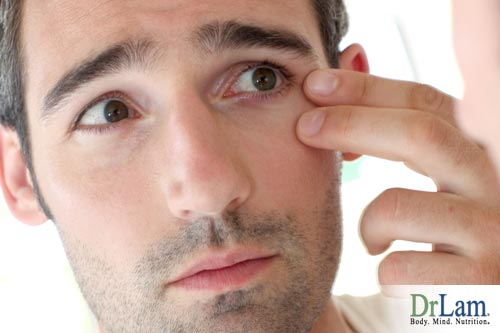 Aging is a disease that starts at age 25 without any warning sign. This is the beginning of the sub-clinical phase of the disease and will last about 10 years. There are no outward signs or symptoms, but inside the cell, free radical damage has already begun. All regular laboratory tests are "normal". Our current diagnostic equipment and laboratory test are not sensitive enough to measure intracellular changes of age related degenerative disease. This begs us to ask, is aging a disease ?
Aging is a disease that starts at age 25 without any warning sign. This is the beginning of the sub-clinical phase of the disease and will last about 10 years. There are no outward signs or symptoms, but inside the cell, free radical damage has already begun. All regular laboratory tests are "normal". Our current diagnostic equipment and laboratory test are not sensitive enough to measure intracellular changes of age related degenerative disease. This begs us to ask, is aging a disease ?
By age 35, a good portion of our cellular protein has been damaged by oxidative stress of pollution, stress, and poor food habits. Significant mutational changes are already well entrenched that eventually may lead to cancer and other degenerative diseases. Symptoms such as glucose intolerance, hypertension, and digestive function imbalance begins to surface as the body starts to de-compensate. These symptoms reflect a body that is in the transitional phase of aging that will last 10 years from age 35 to 45 . Often the laboratory values are "borderline". In reality, the body is entering the transitional phase of the aging process that will last 10 years. Some people will have outward signs and symptoms of age related diseases, while other do not.
By age 45, most people have a variety of outward symptoms commonly accepted as the natural consequence of the aging progress, such as memory loss, decreased energy, hair loss, and wrinkles. Laboratory values are now "abnormal" and it is not uncommon that clinically active degenerative disease such as heart attack, diabetes, and cancer surface by this time. The body is now entering the clinical phase of aging. These signs and symptoms beg us to ask the question "is aging a disease". A proactive approach must be taken, although it may be too late.
By age 55, very few can escape a body free from cancer, artherosclerosis, diabetes, or a combination of the above that account for 80 percent of age-related degenerative diseases. Most people are on some form of drugs for symptomatic treatment of degenerative diseases like osteoarthritis, Parkinson's Disease, and Diabetes. Many are shocked why there had been little to no "warning" signs, and a desperate attempt is now made to launch a salvage operation designed to rescue the body from a lifetime of damage.
Seventy percent of longevity is related to lifestyle and therefore controllable. The remainding thirty percent is controlled by our genetics. Anti-aging medicine is about a medical approach scientifically designed to deter the aging process through a comprehensive proactive anti-aging program focusing on 5 key areas: diet, exercise, nutritional supplementation, hormonal enhancement, and stress reduction.
Is aging a disease and how can it be treated? To deter the onset of the aging process and eradicate this disease, the anti-aging medical specialist employs a multi-discipline approach, incorporating nutrition, biochemistry, genetics, physiology, general medicine, endocrinology, toxicology, physical medicine, preventive medicine, and ortho-molecular medicine etc. as the basis of its study into the aging process.
 Therapeutic modalities employed to deter the aging process includes: hormonal replacement therapy, nutritional medicine, chelation therapy, psychotherapy, and others. Drugs and medicine are used in conjunction with non-invasive alternative approach to eradicate age related degenerative disease such as atherosclerosis, diabetes,and hypertension at its root.
Therapeutic modalities employed to deter the aging process includes: hormonal replacement therapy, nutritional medicine, chelation therapy, psychotherapy, and others. Drugs and medicine are used in conjunction with non-invasive alternative approach to eradicate age related degenerative disease such as atherosclerosis, diabetes,and hypertension at its root.
The most important factor these therapeutic modalities can mitigate is the deleterious effect of stress in speeding up age related degeneration of the body. Weight gain, slowing metabolism, increasing fatigue, memory loss and joint pains are commonly accepted as part and parcel of the aging process. When we look at the physiological factors behind them, however, we find that many symptoms originated in the body’s stress response systems.
The stress response systems of the body are spread throughout the body’s functional corpus and delineated into multiple stress response circuits, encompassing neuroendocrine and metabolic pathways. These circuits jump into action to mitigate the effects of stress and prevent it from having an impact on the health and function of the body. However, if stress is chronic or excessive or both, the stress response system cannot cope and dysregulations appear in the body’s metabolic, endocrine and neurological workings. Symptoms such as hypoglycemia, reduced mental function and hormonal imbalances begin to crop up, and it is these symptoms that are often taken at face value as a natural part of the aging process.
Through proper use of anti-aging therapeutic modalities, the stress induced component of these symptoms can be minimized and pushed back, providing you with greater longevity and increased quality of life.
© Copyright 2005 Michael Lam, M.D. All Rights Reserved.

